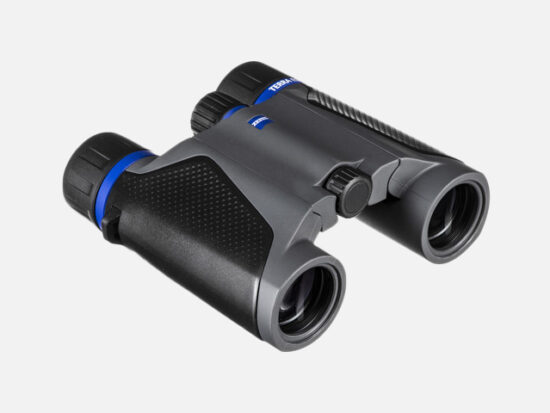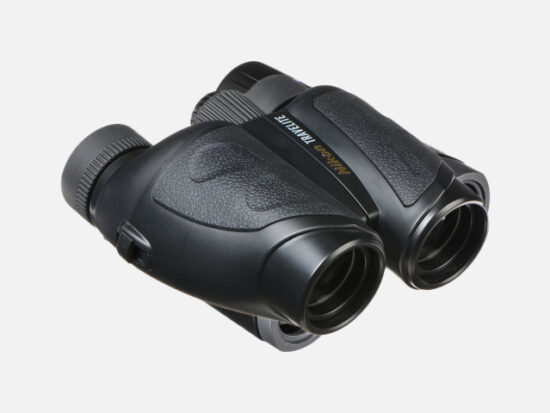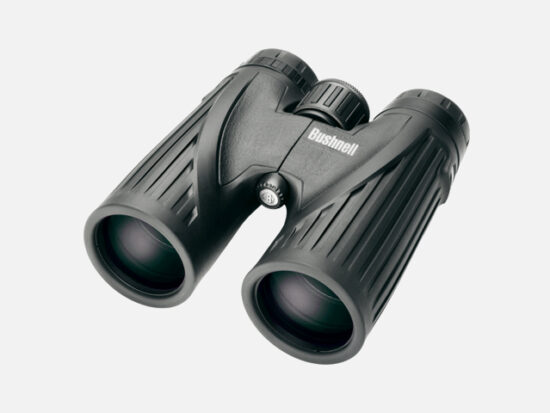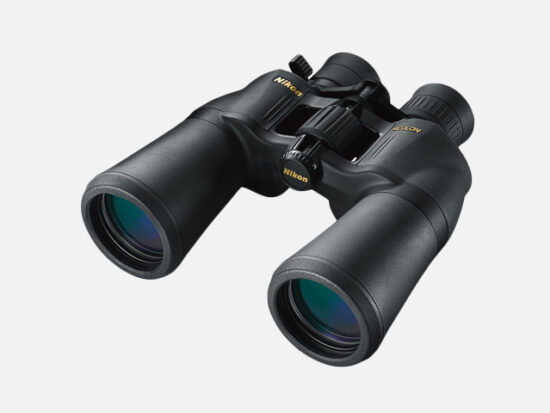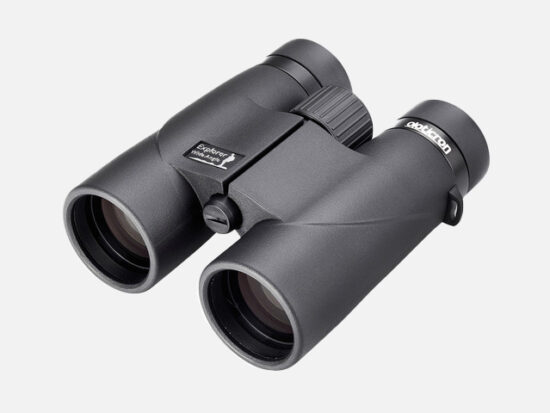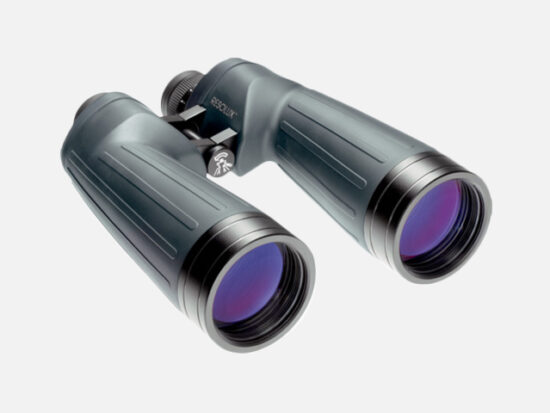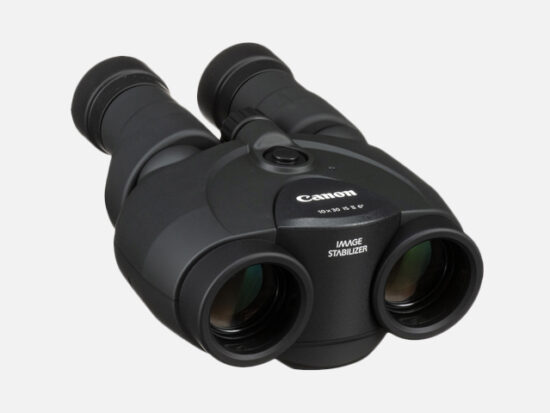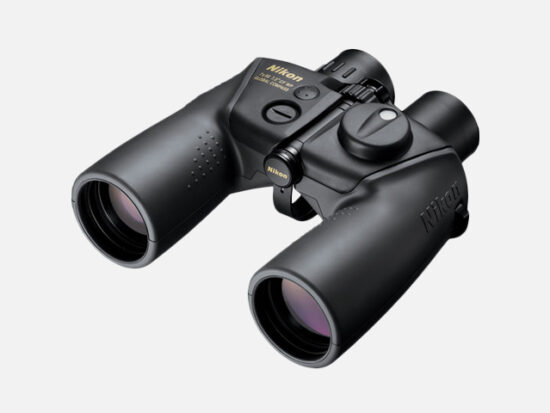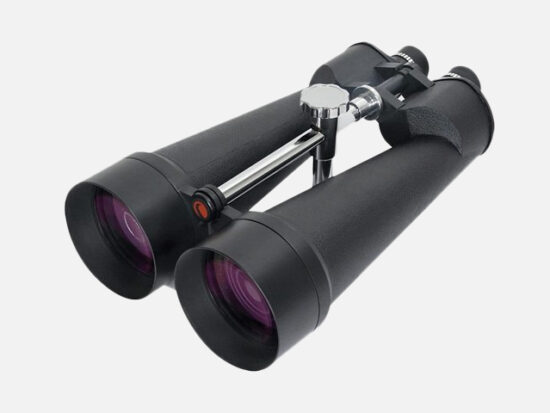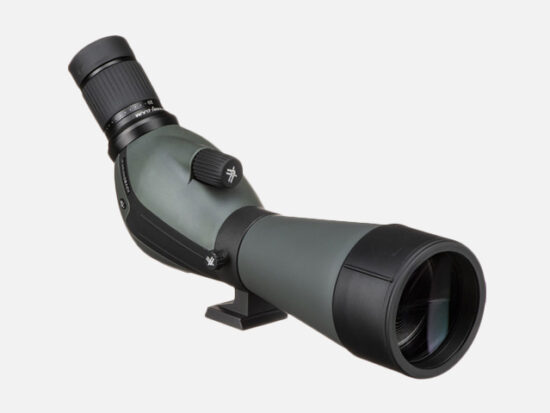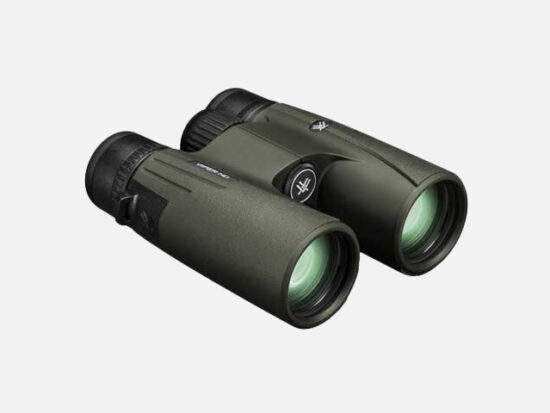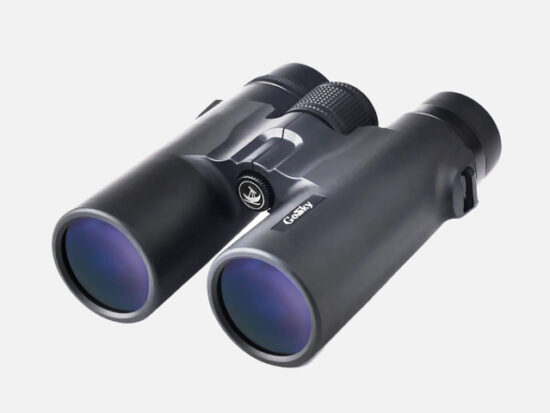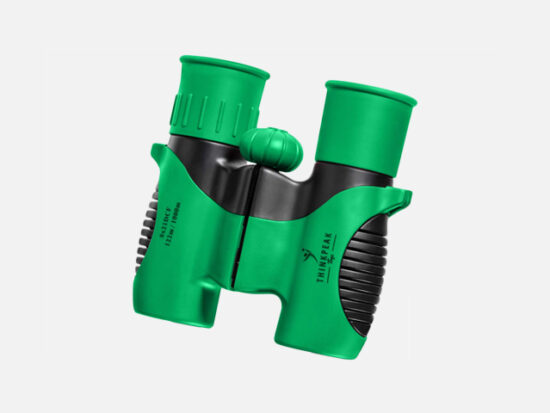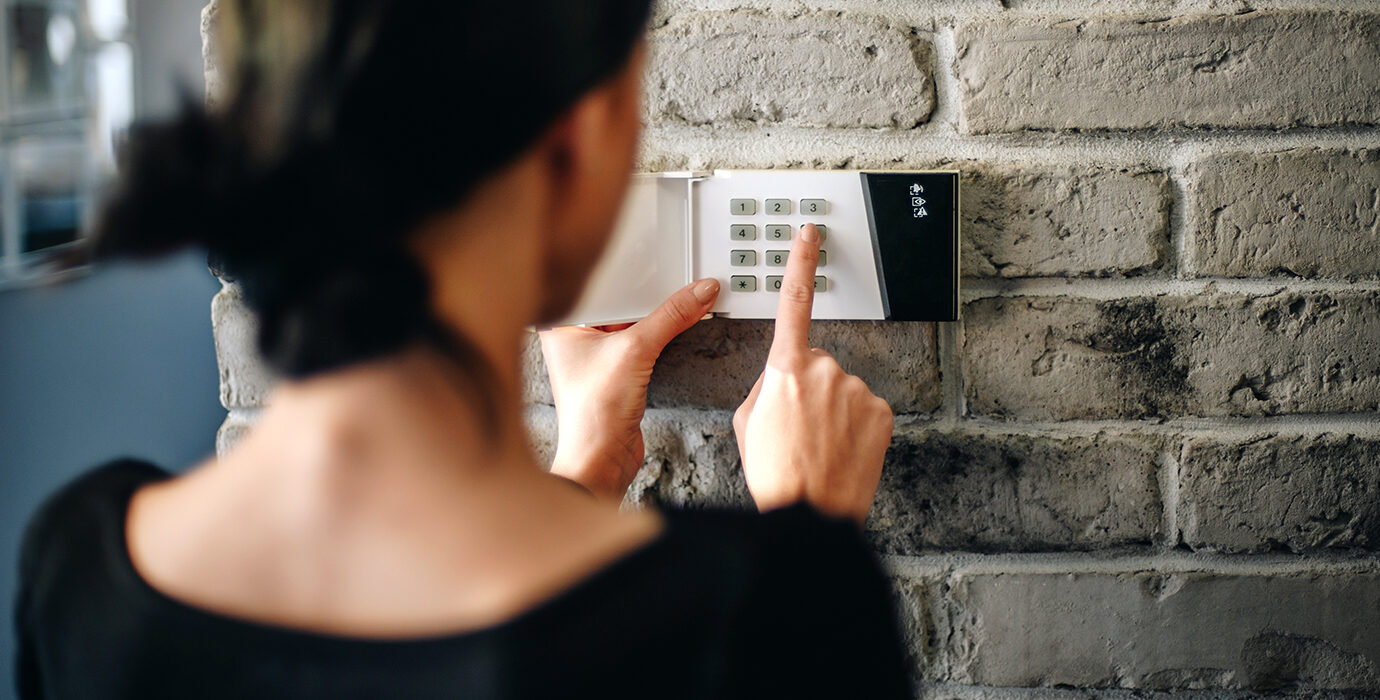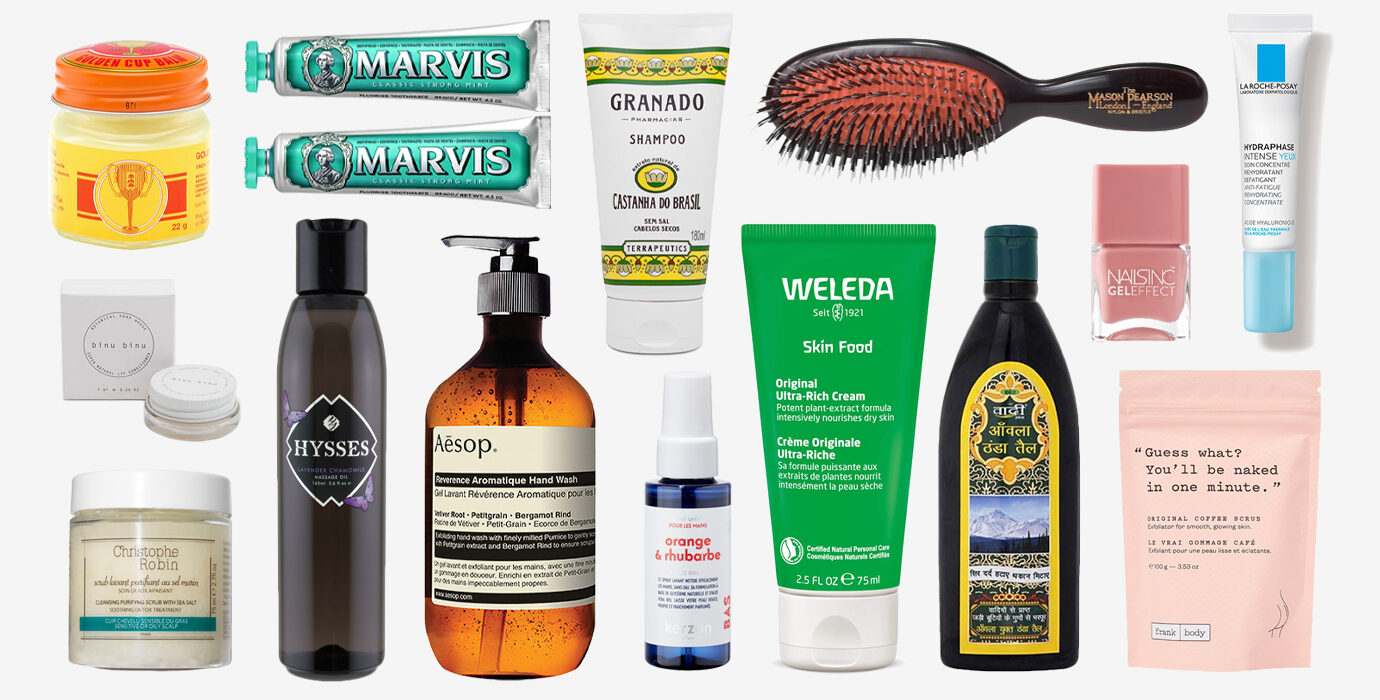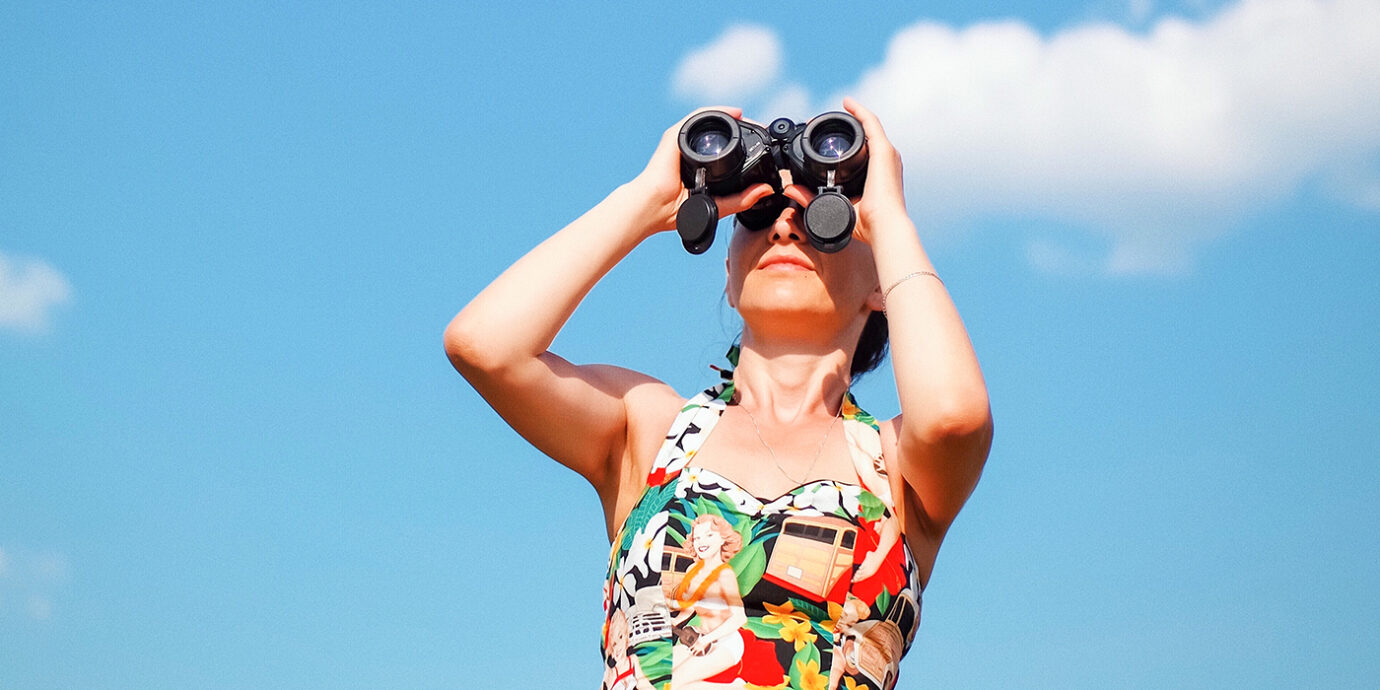
- 1 Best Overall Binoculars
- 2 Best Binoculars for Sightseeing
- 3 Best Binoculars for Hiking
- 4 Best Binoculars for an Alaskan Cruise
- 5 Best Binoculars for Birding
- 6 Best Binoculars for Astronomy
- 7 Best Binoculars for Safari
- 8 Best Binoculars for Boating
- 9 Best Binoculars for Long Distance
- 10 Best Spotting Scope
- 11 Best Binoculars for Hunting
- 12 Best Binoculars Under $100
- 13 Best Binoculars for Kids
The 13 Best Binoculars for Every Type of Trip
All binoculars rely on the same basic technology—lenses and prisms—but not all binoculars are created equal. Ahead, we'll take you through the looking glass to help you find the perfect pair, whether you’re into birds, buffalos, stars, summits, or something in between. Take a look at the best binoculars for every kind of activity.
A Quick Word on Terminology
Binocular brands generally give two numbers separated by an x, such as 8×32: the first number indicates magnification strength (i.e., 8x will magnify an object eight times, bringing it eight times closer). The second number indicates the diameter, in millimeters, of the objective lenses, which is a good clue of how big the binoculars will be (the bigger the number, the bigger the binoculars).
The Best Binoculars for Travel
Best Overall Binoculars
ZEISS 8×25 Terra ED Compact Binocular
We once heard these babies described as “little wonders,” and we couldn’t agree more. Zeiss 8×25 Terra ED Compact Binoculars might be small—indeed, you can fold them up and stick them in your pocket, and, since they weigh less than 11 ounces, you won’t notice they’re in there. Even so—these binoculars are decidedly mighty. Specially formatted glass delivers a clear, color-true image that won’t waver or blur, and 8x is the Goldilocks of magnification (not too powerful, not too weak, but just right) for most activities that benefit from a little extra viewing power, like bird watching, seeing the music-festival main stage from the back of the field, or sitting in the nose bleeds at a major sporting event.
Best Binoculars for Sightseeing
Nikon 12×25 Travelite Binocular
In some situations, such as birding or hunting, you might be able to tote a tripod for when your arms get tired of holding up your binoculars. But you’re probably not going to want to lug around a tripod when exploring the ancient sights of Istanbul or Cairo, which is why you should check out Nikon’s Travelite Binoculars. Small and lightweight, the binoculars ensure that your hands won’t cramp up and that you won’t block anyone else’s view—not a bad thing to keep in mind when traveling, especially with tour groups. Note too that these binoculars are fast and easy to adjust, even when you’re wearing gloves. The same exterior that prevents you from dropping them also makes them relatively weather-proof.
Best Binoculars for Hiking
Bushnell Legend Ultra HD Roof Prism Binocular
Sticking a pair of binoculars in your hiking day pack goes beyond hoping to spot a white-tailed deer or a hawk soaring in the sky. Hikers also use binoculars to admire distant mountain summits and plunging valleys or check weather conditions. Because hiking means moving, you might want to consider getting a pair that won’t be awkward to wear around your neck (a neck strap, such as the one that comes with these binoculars, or chest harness eradicates the need to stop and dig through your pack every time you want to use them). Bushnell Legend Ultra HD Roof Prism Binoculars clock in at less than two pounds, boast unbeatable clarity, and have a special veneer that helps the lenses resist water, fog, and fingerprints.
RELATED: The Best Hiking Shoes for Any Adventure
Best Binoculars for an Alaskan Cruise
Nikon Aculon A211 10-22×50 Binoculars
The number-one criterion when deciding which binoculars to bring on an Alaskan cruise? Flexibility. You want binoculars that will allow you to catch sight of a brown bear meandering on the shore or a humpback whale spyhopping in the Inside Passage, then zoom in on the awesome 400-foot-tall face of Hubbard Glacier in Disenchantment Bay. Nikon’s Aculon binoculars let you do all of that, offering a magnification range between 10x and 22x. Because they’re adjustable (via a central knob) with just one finger, you’ll spend more time seeing and less time fiddling. We also like the ergonomic design: the binoculars feel good in your hands, even as you’re patiently watching for the next big or beautiful thing.
RELATED: What to Pack for an Alaskan Cruise
Best Binoculars for Birding
Opticron 8×42 Explorer WA ED Oasis-C Binocular
Deciding on the best binoculars for birding requires a whole host of considerations: you need binoculars that will quickly magnify fast-moving feathered friends, but you also need to make sure the field of vision is wide enough to enable your eyes to follow said friends as they fly. Last but not least, you want binoculars that work in the dim light so beloved by avian (and other) creatures without losing any detail of their kaleidoscopic plumage. Enter the Opticron Explorer WA ED Oasis-C 8×42, whose trademark multicoated, anti-reflection technology will have you crossing species off your checklist in no time.
Best Binoculars for Astronomy
Orion Resolux 15×70 Waterproof Astronomy Binoculars
First of all, yes, you can absolutely use binoculars to explore the night sky. Astronomy no longer mandates a telescope, thanks to recent developments in optics, but you will want binoculars specially designed for stargazing and comet-spotting, which pull in enough light to enable you to see objects in the dark. Magnification is another factor, of course, given the distance between you and the average celestial body. The 15x power of Orion Resolux Binoculars ensures you’ll see practically light years ahead as you pick out the mountains of the moon, stars being born in the Orion and Lagoon Nebulae, and other wonders of the Milky Way.
Best Binoculars for Safari
Canon 10×30 IS II Image Stabilized Binoculars
Two words: image stabilization. If you’ve ever spent the day holding a pair of binoculars to your face, you know those words—or, rather, the magic behind them—are everything. Image stabilization is what keeps what you’re seeing steady and stable, regardless of circumstance. So, you’ll still be able to ooh, aah, and ogle as your driver races after a pride of lions or a leaping leopard. Same goes for when your arms get too tired to hold the binoculars steady. Canon‘s proprietary tech make its binoculars our top pick for safari, leaf-peeping, or anytime you need a closer look while you’re on the move.
Best Binoculars for Boating
Nikon 7x50CF OceanPro CF WP Global Compass Binocular
If you’re on a long-tail boat in the Andaman Sea, you’ll want binoculars to focus in on the magnificent karsts of southern Thailand. Boat-touring around Rio’s spectacular Guanabara Bay, one of the seven natural wonders of the world? Binoculars will help you see the bay’s iconic Christ the Redeemer statue and the tippy-top of Sugarloaf Mountain. But using binoculars on watercraft can be kind of tricky, since you tend to jostle the binoculars—sometimes subtly, sometimes not so much—as you yourself are being jostled by the waves. Binoculars’ magnification can also produce a distorting effect, especially when you’re scanning the horizon. Nikon’s OceanPro Binoculars rely on some cool technology to offset these issues, and include an illuminated compass that simplifies distance and size calculations, a must for nautical navigation. The lenses are surrounded by a thick veneer of anti-corrosion polycarbonate, capable of withstanding saltwater as well as rain. And the strap floats, in case the binoculars happen to somehow go overboard.
Best Binoculars for Long Distance
Celestron SkyMaster 25×1000 Binoculars
A good pair of binoculars is great, but a good pair of long-distance binoculars is truly transformative. You’ll see things the naked eye can only imagine, on earth and in the heavens. To do so, though, you need binoculars that offer a huge magnification range. Celestron’s 25×1000 binoculars let you adjust each eyepiece individually, which permits powerful, precise viewing (super convenient if you don’t want to wear your glasses or are prone to eye strain). You’ll be spotting zebra frolicking across the savanna or the Northern Lights sparking in no time. Alas, the awesome augmentation and precision have one downside: weight—a pair weighs about 10 pounds. Luckily these binoculars mount easily onto standard tripods.
RELATED: The Best Travel Tripods for Once-in-a-Lifetime Shots
Best Spotting Scope
Vortex Diamondback 20-60X80 Spotting Scope
Basically, a spotting scope is a monocular—picture a pirate breaking out a spyglass to investigate a rapidly approaching enemy ship. Aside from channeling Jack Sparrow, you can use a spotting scope in many of the same situations you’d use binoculars, especially espying the colorful feathers of the painted bunting, or bagging the next big buck on your bucket list. Scopes are best when you won’t be moving much, since they usually require a tripod for optimal viewing. The Vortex Diamondback Spotting Scope gets our vote for a few reasons: crystal-clear, true-color images, a nice, comfortable eye ring, and an angled body, making for less strain on your neck.
Best Binoculars for Hunting
Vortex Viper HD 10×42 Binoculars
Vortex Viper HD 10×42 Binoculars are made for trekking, traipsing, trapping, and tramping around the outdoors. A special O-shaped ring surrounds the lenses and prevents any dirt, grim, or debris from scratching them, while a durable, scratch-resistant coating makes them fog- and waterproof. This coating also helps guarantee that they won’t get damaged when you toss them aside to take the shot. Speaking of guarantees, Viper Binoculars come with a lifetime warranty. These bad boys can be used with a chest harness, so there won’t be any fretting about where or how to stash them alongside the rest of your gear.
Best Binoculars Under $100
Gosky 10×42 Roof Prism Binoculars for Adults
CBD everything, skateboarding as an Olympic sport, the ability to purchase an excellent pair of binoculars for just under $100—sometimes it really is a glorious time to be alive. Gosky’s Roof Prism Binoculars provide excellent optics for not too much dough (as well as a padded carrying case, cleaning cloth, and neck strap). These binoculars work in any light, but are especially good for wildlife viewing, concert-going, bird-watching, and other active outdoor use. They’re solidly constructed, yet tiny enough to throw in a bag or backpack. We also love the smartphone mount, ideal for making sure your followers see what you see.
Best Binoculars for Kids
Think Peak Binoculars for Kids
Got a budding naturalist, camper, or scientist in your life? Get them a pair of Think Peak’s binoculars, specially designed for little hands to hold, adjust, and drop. It’s true! An anti-shock rubber layer surrounds the delicate lenses, so kids (and their grown-ups) don’t need to worry if (or when) the binoculars hit the ground. We also like how easy these binoculars are to use: kids won’t need help figuring out how to work the focus or fit the binoculars to their face, so they’ll be off on their adventure before you can say, “hey, wait for me!”
Related Stories
- Best Sleeping Bags for an Amazing (and Toasty!) Night’s Rest
- The Best Accessories to Soup Up Your Smartphone (and Your Travel Pics)
All products have been hand-picked by our writers and editors. Items purchased through links may earn us a commission.
